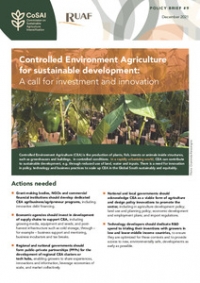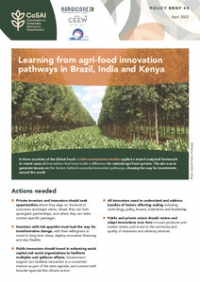Rapid land use changes in the Red River Basin threaten water resources. Urbanization, deforestation, intensive agriculture etc. cause pollution, ecosystem degradation, increased greenhouse gas emissions, floods and droughts. This project will be working in the Day River Catchment, a Red River distributary important for Hanoi, where most of these problems are manifest. More inclusive development of land and water resources is possible with interventions such as sustainable urban drainage, agroforestry and minimum tillage, but trade-offs between land development and riverine ecosystems remain. It is a challenge to quantify the impact of interventions, to feed this knowledge into regional and national planning systems and to incorporate more inclusive practices into private sector investments. This project specifically sets out to address these challenges. The project will develop equitable and economically viable pathways for the land and water resources of the Red River Basin that maximize social and environmental benefits over the next decades. The project will develop these pathways through multilevel stakeholder dialogues, using scenario thinking, and support this process with the (further) development of tools and frameworks for governing water and land, including further development of Water Accounting (WA+). WA+ is the systematic process of identifying, recognizing, quantifying, reporting, assuring and publishing information about water, the rights to that water, and the obligations against that water. WA was originally developed by IWMI and has been modified and upgraded by TUDelft into WA+. Inspired by financial accounting systems, WA+ provides coherent and harmonized information on land and water resources by means of sheets and tables. WA+ supports analysis and decision-making for complex water, land and ecosystems. The information from WA+ is open access. Experience shows that when stakeholders view the open access data on a platform, they are more inclined to contribute their own data. An ‘ecosystem service sheet’, showing the benefits of ecosystem to humans, will be developed using the results of this project. In this way, the project will develop an innovate tool for inclusive decision-making that can used at a global scale to support water resources planning. Scenario thinking is a strategic planning method to make flexible long-term plans. The technique usually employs games that combine known facts about the future, such as demographics, geography, land use change, water use, with key driving forces identified by considering social, technical, economic, environmental, and political trends. Scenarios are a suitable planning instrument for complex systems with large uncertainties. The novelty of this project is the application of this method in a multilevel stakeholder dialogue using workshops, round table discussions, social media and gaming, supported with advanced modelling tools.
menu

















